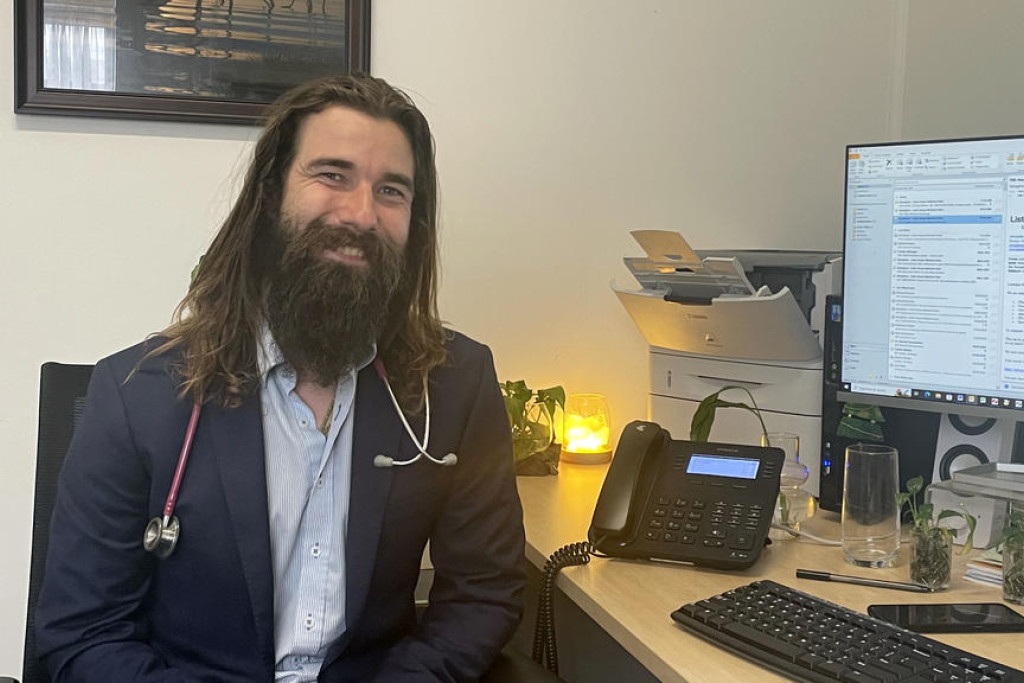General News
23 August, 2025
Media and Sleep: Friend or Foe?
Call the Doctor column this week continues Dr Ritson's two-part article on sleep. Part One was featured in the Mail-Times on August 8, and this fortnight he continues to delve into how media can be beneficial to us, but also have consequences on our sleep. Enjoy!

Last fortnight I wrote about sleep as an important component of what is known as lifestyle management. Improving one's habits and lifestyle has massive benefits on health and well-being.
Diet, exercise, alcohol and other drugs, sleep, media and socialisation are the main areas in which lifestyle changes can be made.
This fortnight, I’d like to talk about media.
Our world is full of media, and has been for a very long time.
Critics are quick to blame media, particularly social media, for many of society’s problems.
However, some experts consider this an overreaction.
Yes, there are many harmful aspects of modern media; however, there is also a lot of good.
Watching television with children while talking to them about the content can be beneficial.
Certain video games can improve problem-solving and reflexes, and social media can keep us connected like never before.
Consider that when newspapers first became commonplace, there was a popular opinion that newspapers would cause the unravelling of the social fabric, in hindsight, a clear overreaction.
This said, some harmful aspects of media are underappreciated.
Often, I find patients are unaware of the link between the content they consume and their mood.
I was taught that, in essence, the core structures of our brain cannot tell the difference between media and reality.
If you watch horror films, listen to true crime podcasts or read murder mysteries, your brain and emotions will act as if you live in those worlds.
For example, patients of mine with anxiety and depression feel much better after they stop watching the world news each evening.
I personally cannot understand what it is that makes people enjoy scary movies.
However, there is a psychological theory that attempts to explain this phenomenon. It suggests that watching awful things happen causes the viewer to dissociate.
Dissociation generally refers to a psychological state in which someone is no longer consciously present or in-tune with themselves and their environment.
People may use media to dissociate, particularly if they have chronic anxiety.
When they are dissociated they are no longer present with their anxiety, and hence don't experience the pain of it.
This, sadly, is not a healthy way to manage negative emotions, akin to pushing a boulder up a hill.
The use of media to dissociate is very common, not just with unpleasant content but also what is called 'doom scrolling'.
Apps like Facebook, Instagram, YouTube and Tiktok provide endless streams of very short films that can be incredibly distracting and consuming.
People spend hours doom-scrolling, with powerful algorithms selecting material designed to keep the viewer hooked.
This time-consuming dissociation is another common way in which media use can be harmful.
However, developing a habit of engaging with health-related media can dramatically improve your life.
The internet is bustling with experts and role models promoting health.
Reading, watching, and listening to people talk about being healthier will go a very long way to making you healthier.
Though remember to use discernment with what you believe and if unsure speak to a trusted health professional.
Don’t underestimate the insidious and significant effect the media you consume can have on your health.
Use its gifts wisely, accepting that in most ways the world is much better for it.
Try not to overindulge as a means of escaping reality, and remember that what you feed your mind will greatly influence what your mind then experiences.